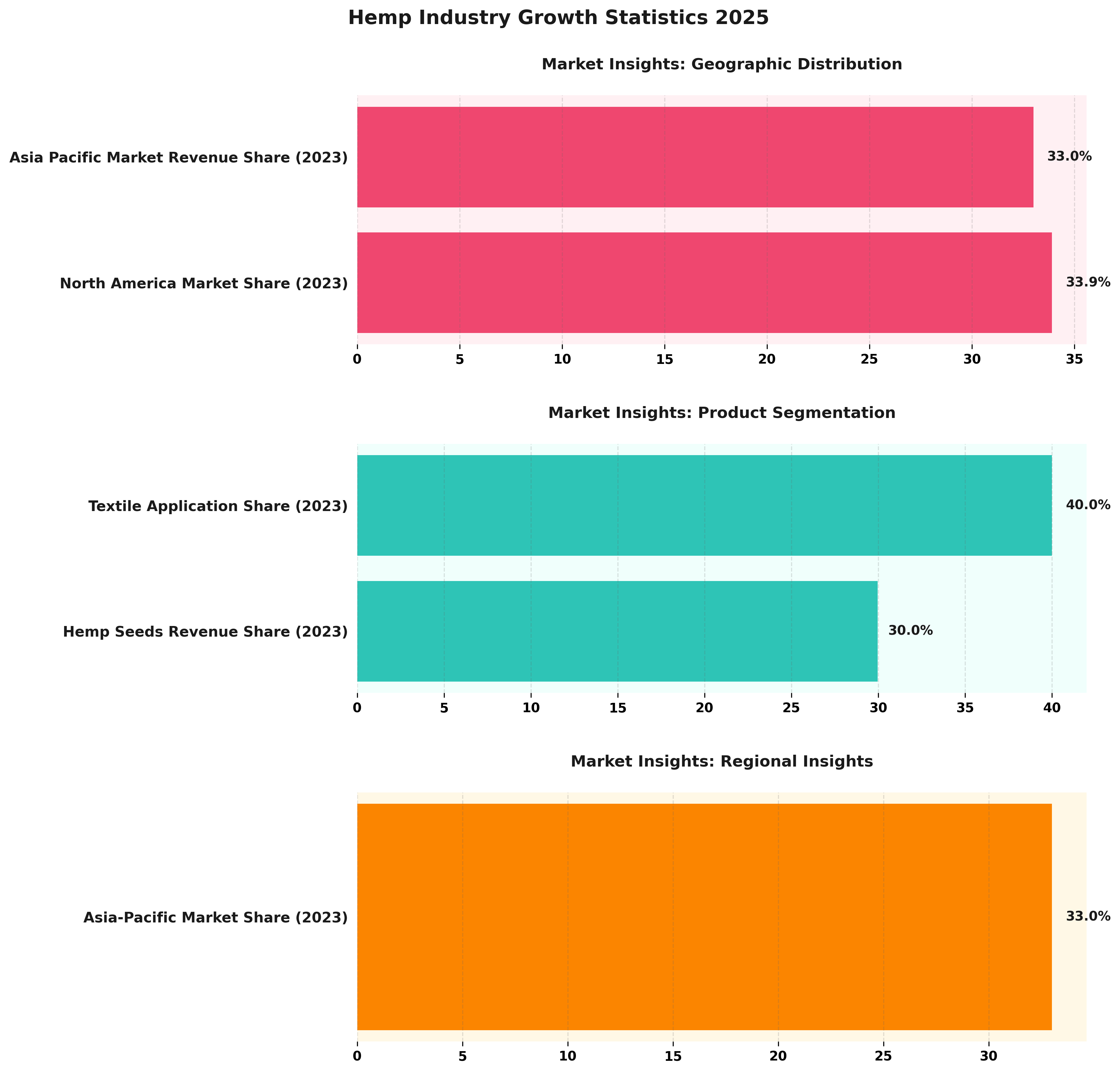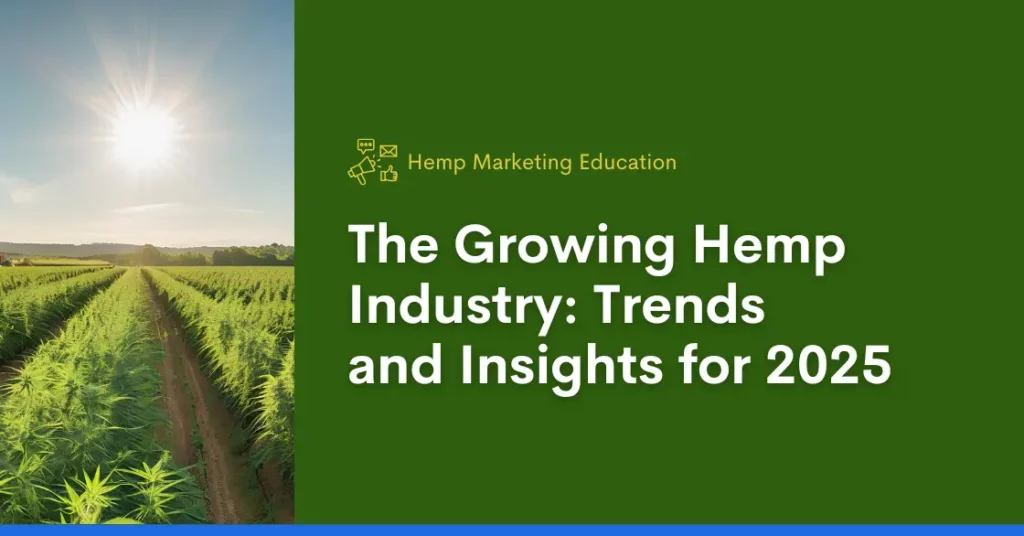As we move into to 2025, the hemp industry is poised for significant transformation, driven by emerging trends and shifting consumer preferences.
In this article, we navigate the complex nature of hemp, focusing on its evolving role in sustainability and the economic opportunities it creates for different types of entrepreneurs.
Understand how different sectors—ranging from health and wellness to construction—are leveraging the benefits of hemp, while also adapting to regulatory changes and technological innovations that are defining its future.
Discover the potential of hemp to promote beneficial impacts on the environment and society.
Key Takeaways:
- The hemp industry is poised for significant growth in 2025, driven by rising consumer interest and environmental awareness.
- Entrepreneurs have numerous opportunities within the hemp sector, particularly in innovative and sustainable products for sectors like wellness, apparel, and construction.
- Collaboration and networking are essential for the success of hemp businesses, as well as educating consumers and advocating for the industry’s potential.
Key trends for the hemp industry in 2025
.jpg_00.jpeg)
With 2025 approaching, the hemp industry is set for substantial changes, influenced by evolving consumer preferences, regulatory changes, and innovative market strategies.
The increased acceptance of hemp products across various sectors, such as wellness, food and beverage, and construction, highlights the industry’s potential for sustainable growth.
Market analysts predict that the global hemp market could achieve unprecedented heights, with projections indicating a compound annual growth rate (CAGR) exceeding 20% in the coming years.
A critical factor driving this growth is the notable shift in consumer demand toward eco-friendly and health-oriented products, highlighting the need for strong digital marketing strategies.
Brands are employing social media and influencer collaborations to create initiatives that appeal to environmentally aware consumers.
As they navigate the challenges of separating brands in a crowded market, these companies are also cultivating deeper connections with their customers, which bodes well for a long-term, sustainable outlook for the hemp industry.
Hemp Industry Growth Statistics for 2025

The Hemp Industry Growth Statistics for 2025 data provides a comprehensive look at the geographic distribution and product segmentation within the hemp market in 2023 and 2024.
The insights are crucial for understanding the industry’s dynamics and potential growth areas.
Market Insights reveal the leading regions and product categories.
North America captures a 33.9% market share, showing its significant role in the global hemp market, driven by increasing legalization and consumer demand for hemp-based products.
Similarly, Asia Pacific commands a substantial 33.0% market share, attributed to its favorable climatic conditions for hemp cultivation and government efforts promoting industrial hemp utilization, for many many years.
This region is expected to grow as it leverages traditional uses and modern applications.
- Product Segmentation: The data shows that hemp seeds account for 29.97% of revenue, showing their popularity due to nutritional value and versatility in food items. Additionally, the textile application of hemp comprises 40.0% of the market share, demonstrating hemp’s return as a sustainable and durable option. This segment is gaining traction as consumers and manufacturers prioritize eco-friendly materials.
Regional Insights highlight Asia Pacific’s impact, maintaining a 33.0% share of the market.
This consistent figure illustrates its vital role in the industry’s supply network.
Overall, these statistics underscore the hemp industry’s growth potential, driven by geographic diversity and versatile applications.
Businesses looking to take advantage of this growth should focus on expanding their presence in these key regions and innovating within high-demand product segments like textiles and hemp seeds.
How is consumer demand for hemp products evolving in various sectors?
Consumer demand for hemp products is evolving rapidly as you become increasingly aware of their health advantages and environmental benefits across various sectors, particularly in wellness, food and beverage, and personal care.
As you grow more eco-conscious and informed about the potential of hemp-derived CBD as a dietary supplement or therapeutic solution, you will notice remarkable growth in the market for these products.
This shift is not merely a passing trend; it represents a fundamental change in consumer values, with many like yourself prioritizing sustainable and natural options in purchasing decisions.
In the wellness sector, for instance, hemp-based supplements are gaining traction among fitness enthusiasts seeking natural recovery solutions.
Meanwhile, the food and beverage industry is witnessing a rise in the incorporation of hemp seeds and oil due to their nutritional benefits.
There’s also a huge shift from alcohol consumption to more natural and less toxic ways of consuming in a social setting.
As a cannabis consumer, you are actively shaping product innovation by demanding higher quality and diverse formulations, prompting brands to diversify their offerings.
Consequently, companies are rethinking their marketing strategies to foster brand loyalty among discerning customers like you, focusing on transparent sourcing practices and education about the benefits of hemp to build a strong community around their products.
What are the economic opportunities in the hemp industry for entrepreneurs?
The hemp industry offers a wealth of economic opportunities for you as an entrepreneur, featuring lower operational costs compared to traditional crops and a strong market demand for hemp-derived products.
As regulations surrounding hemp cultivation continue to evolve, innovative businesses are emerging, allowing you to capitalize on this sustainable crop and contribute to economic development and job creation in the sector.
You can explore various business models, from cultivating high-yield hemp strains to developing a diverse range of products such as oils, textiles, bio-plastics, building materials and biofuels.
Numerous success stories illustrate how small farmers are transforming their practices to meet the growing consumer interest in hemp, significantly increasing their profitability.
Manufacturers are also discovering new markets for hemp-derived ingredients in the beauty and wellness sectors, tapping into a range of opportunities that promise substantial financial returns.
As market demand continues to rise, those engaged in the hemp industry can benefit not only economically but also as pioneers in sustainability, promoting eco-friendly practices across various sectors.
How is the hemp industry impacting sustainability and environmental practices?
The hemp industry is making notable progress in promoting sustainability and environmentally friendly practices, establishing hemp as a versatile sustainable crop with applications that span from textiles to construction materials.
Its ability to thrive in diverse conditions and enhance soil health positions hemp cultivation as a viable alternative to conventional agricultural products, which often contribute to environmental degradation.
By effectively capturing carbon dioxide, hemp plays a role in mitigating climate change while also improving soil quality through its deep-rooting system.
This system helps prevent erosion and enriches the land.
Furthermore, innovative practices such as crop rotation and polyculture are utilized to maximize the ecological benefits of hemp farming.
This plant requires significantly fewer pesticides and fertilizers compared to traditional crops, thus reducing harmful runoff and promoting biodiversity.
Products like hempcrete and biodegradable textiles illustrate how hemp can be integrated into sustainable building practices and the fashion industry, highlighting its potential to replace more resource-intensive materials.
What regulatory changes are expected to influence the hemp market by 2025?
The hemp market is on the brink of significant transformation by 2025, driven by anticipated regulatory changes that have the potential to reshape the operational and financial frameworks for cannabis businesses.
As lawmakers reassess the classification of hemp and THC levels, the implications for hemp-derived CBD products and taxation under regulations such as 280E will be critical for industry participants.
These developments could introduce new labeling requirements, sales regulations, and cultivation guidelines that will directly impact how hemp is grown and marketed.
Consequently, it is essential for cannabis businesses to remain vigilant and informed about proposed changes at both federal and state levels.
Strategic preparation will require not only adapting internal compliance measures but also seeking out educational resources and potential partnerships to effectively navigate the evolving landscape.
By proactively assessing their supply chains and distribution methods, companies can mitigate risks and capitalize on emerging market opportunities as regulations continue to evolve.
How can hemp be integrated into the wellness and health sectors effectively?
.jpg_01.jpeg)
Hemp’s integration into the wellness and health sectors is gaining significant momentum, driven by the increasing recognition of CBD and other popular cannabinoid health benefits and the rising demand for natural dietary supplements.
As you explore alternative options for health and wellness, it is crucial for businesses to innovate and incorporate hemp-derived products into their offerings.
This momentum is clearly reflected in the rise of hemp-infused oils, topicals, and edibles specifically designed to promote overall well-being.
To effectively harness the benefits of hemp, it is essential to focus on careful formulation, taking into account factors such as dosage, bioavailability, and ingredient synergy to enhance product efficacy.
Consumer education is critical in this market, as it helps potential users differentiate between hemp seed oil and CBD oil while dispelling common misconceptions.
With a strong emphasis on transparency, brands are prioritizing quality control and third-party testing, aligning with current market trends that favor sustainability, ethical sourcing, and informed consumer choices.
What innovations in hemp-based products are anticipated in the coming years?
The coming years are anticipated to bring substantial innovations in hemp-based products, fueled by advancements in technology and an increasing consumer awareness of the benefits of hemp.
As cannabis brands invest in research and development, you can expect new applications and formulations for hemp-derived products to emerge, addressing a variety of consumer needs.
Innovative manufacturing techniques, such as advanced extraction methods and the integration of biotechnology, will significantly enhance product quality and efficacy.
This transformation will encompass not only traditional items like oils and textiles but will also branch out into unique categories, including hemp-based beauty products and sustainable packaging solutions.
As consumers become more educated about the environmental benefits and health advantages of hemp, their preferences will undoubtedly influence the direction of product developments.
This shift in consumer behavior is set to drive market growth, encouraging both established and emerging brands to explore the full potential of hemp, ultimately leading to a more diverse and vibrant marketplace.

How is the construction industry utilizing hemp for sustainable building solutions?
The construction industry is increasingly turning to hemp as a sustainable building solution, utilizing hemp-based materials to minimize the environmental impact of construction practices.
From hempcrete to insulation, these eco-friendly alternatives offer durable and energy-efficient options while promoting the use of agricultural by-products.
Innovative applications such as hemp fiberboard and hemp insulation are gaining popularity among eco-conscious businesses that recognize the numerous benefits these materials provide.
For example, hempcrete not only demonstrates exceptional insulation properties but also helps regulate humidity levels within buildings, fostering healthier living environments.
As more construction firms embrace these sustainable practices, the sector is undergoing a shift towards greener methodologies that prioritize longevity and reduced carbon footprints.
This transition supports local agriculture and sets a precedent for future developments, ultimately contributing to a more sustainable construction landscape that aligns with global environmental goals.
What role do eco-conscious businesses play in the growth of the hemp market?
Eco-conscious businesses are playing a pivotal role in the growth of the hemp market by championing sustainable practices and promoting hemp-derived products that resonate with your values as a consumer.
As green entrepreneurs embrace hemp’s potential, they contribute to the development of a market that prioritizes environmental stewardship and social responsibility.
These enterprises are actively creating educational campaigns to inform you about the myriad benefits of hemp, which range from its versatility in textiles and food to its potential applications in bioplastics.
By emphasizing transparency in their supply chains and the ethical sourcing of materials, they not only attract environmentally conscious customers like you but also encourage broader societal shifts toward sustainable consumption.
Initiatives that highlight the carbon-negative properties of hemp cultivation demonstrate a strong commitment to reducing ecological footprints, thereby enhancing brand loyalty among consumers who prioritize environmental integrity in their purchasing decisions.
How can advocates promote hemp’s potential for positive social change?
As an advocate for hemp, you have a unique opportunity to promote its potential for positive social change by raising awareness about its environmental benefits and economic opportunities.
Through community-driven initiatives and educational campaigns, you can foster a deeper understanding of hemp’s multifaceted applications and encourage consumer support for sustainable practices.
By emphasizing the renewable nature of hemp and its ability to reduce reliance on harmful materials, you can demonstrate how embracing this versatile plant can contribute to a healthier planet.
Engaging local communities in discussions about the economic advantages, such as job creation and reduced carbon footprints, is essential.
Grassroots movements can amplify these messages, motivating individuals to advocate for policies that prioritize hemp cultivation and usage.
As consumer awareness grows, so does the pressure on industries to adopt eco-friendly methods, leading to a transformation in perceptions and promoting a more sustainable future.

What challenges do hemp entrepreneurs face, and how can they overcome them?
.jpg_10.jpeg)
Hemp entrepreneurs face various challenges that can impede progress, including navigating complex regulatory frameworks, securing funding, and fostering consumer trust in a still-evolving market.
By leveraging networking opportunities, engaging in community-driven initiatives, and focusing on brand differentiation, you can effectively overcome these hurdles and thrive in the hemp industry.
Among the legal obstacles, understanding local and federal laws can be daunting, especially as regulations often vary significantly by location.
Financially, many new entrants struggle to access capital due to traditional banking institutions’ reluctance to lend to hemp-related ventures.
Market-related issues also persist, such as product saturation and the necessity for effective marketing strategies to stand out.
To combat these challenges, prospective hemp entrepreneurs are advised to:
- Seek partnerships with industry associations that provide valuable resources,
- Attend workshops to enhance their knowledge, and
- Adopt transparent practices to build consumer confidence.
Creating a robust online presence can significantly amplify your brand awareness, attracting an audience eager to engage with innovative hemp solutions.
What are successful case studies of hemp businesses making an impact?
Successful case studies of hemp businesses illustrate the significant potential for innovation and economic growth within the industry.
Companies that have effectively differentiated their brands through unique product offerings and sustainable practices have not only achieved financial success but have also contributed to enhancing the positive perception of hemp in society.
One notable example is a company that has integrated advanced farming techniques with eco-friendly production processes, demonstrating how sustainable practices can result in both high-quality products and environmental stewardship.
Their creative marketing strategies, combined with a strong commitment to community engagement, have established a benchmark for others in the industry.
Such businesses show that aligning brand values with customer expectations can drive loyalty and foster growth.
These real-world examples serve as inspiration for aspiring entrepreneurs, emphasizing the importance of authenticity and innovation in their ventures. They encourage you to think outside the box and carve out your own niche in the hemp sector.
How can networking and collaboration benefit those in the hemp industry?
Networking and collaboration are essential for achieving success in the hemp industry. By building relationships and sharing resources, businesses can foster a strong sense of community.
When you collaborate with other cannabis businesses, you can leverage each other’s strengths to navigate challenges and drive market growth.
In the fast-paced world of hemp, numerous networking opportunities exist, from industry conferences that highlight the latest research to trade shows where brands can showcase their innovations.
Online platforms also play a crucial role by allowing entrepreneurs to connect across geographic boundaries, share insights, and engage in meaningful discussions.
By actively engaging with like-minded individuals and organizations, you can enhance the flow of information and create an environment conducive to collaboration.
As members of this community unite, they can brainstorm innovative solutions to common challenges, ultimately promoting innovation and ensuring sustainable growth in an industry that is still evolving.
What skills and knowledge are essential for success in the hemp sector?
To achieve success in the hemp sector, you must possess a diverse skill set that includes knowledge of regulatory frameworks, marketing strategies, and product innovation relevant to the cannabis industry.
Understanding consumer trends and operational best practices is also essential for navigating the unique challenges faced by hemp businesses.
In this dynamic landscape, your skills in business management will become crucial, as they will help you make sound financial decisions and optimize resources effectively.
Staying informed about compliance requirements ensures that your business operates within legal boundaries, fostering trust and credibility in the marketplace.
Consumer engagement is another pivotal area; building meaningful relationships with customers can lead to brand loyalty and sustainable growth.
Ongoing education is vital, as market trends and regulations are continually evolving.
You need to be adaptable, embracing new technologies and strategies that can enhance your offerings and keep you competitive.

How can consumers support the growth of the hemp industry?
Consumers play a crucial role in supporting the growth of the hemp industry by making informed purchasing decisions and advocating for sustainable practices.
By choosing hemp-derived products and supporting eco-conscious businesses, you can actively contribute to market growth and promote positive environmental change.
Along with purchasing these products, you can raise awareness within your community about the benefits of hemp, including its minimal environmental impact and its versatility in various applications such as textiles, food, and construction materials.
Engaging in advocacy by contacting local representatives to express support for hemp-friendly legislation can further influence market dynamics, encouraging the establishment of more hemp farms.
Through a collective effort in education and activism, you can help pave the way for a more sustainable future while boosting an industry that is well-positioned to thrive alongside conventional materials.
What future opportunities exist for hemp in food and nutrition markets?
.jpg_11.jpeg)
The future of hemp in the food and nutrition markets appears promising, as you observe a growing consumer interest in plant-based and health-focused products.
With hemp’s strong nutritional profile and its potential as a dietary supplement, there are significant opportunities for innovation and new product development in this sector.
As consumers increasingly seek alternatives to traditional animal-based foods, hemp-derived sources such as protein powders, oils, and snacks are becoming prominent on store shelves and in meal plans.
The versatility of hemp allows for its integration into a wide range of culinary applications, appealing to various dietary preferences, including vegan and gluten-free diets.
Moreover, trends indicate a rising demand for transparency and sustainability in sourcing, which compels businesses to adopt responsible practices that resonate with health-conscious shoppers.
By embracing product innovation and responding to these evolving consumer preferences, companies can effectively carve out a niche in the expanding market and enhance their competitive edge.
Frequently Asked Questions
What are the current trends in the hemp industry?
The Growing Hemp Industry: Trends and Insights for 2025 report predicts a significant increase in demand for hemp products, particularly in the food, wellness, construction, and sustainability sectors. The industry is also seeing a rise in sustainable and eco-friendly practices, as well as innovative uses for hemp.
What is driving the growth of the hemp industry?
The Growing Hemp Industry: Trends and Insights for 2025 report cites the growing awareness and acceptance of hemp as a versatile and sustainable crop, as well as the increasing demand for natural and organic products.
Additionally, the legalization of hemp in many countries and the potential for new medical and industrial applications are contributing to the industry’s growth.
What impact will the hemp industry have on the environment?
The Growing Hemp Industry: Trends and Insights for 2025 report highlights hemp’s potential to positively impact the environment through its ability to absorb carbon dioxide, purify soil, and reduce the need for harmful pesticides and herbicides.
As more industries incorporate hemp into their products, we can expect to see a decrease in environmental damage and an increase in sustainability.
How will the hemp industry benefit the economy?
According to The Growing Hemp Industry: Trends and Insights for 2025, the global hemp market is expected to reach $26.6 billion by 2025. This growth will lead to job creation and economic opportunities, particularly in rural and agricultural areas. Additionally, the use of hemp in various industries can reduce reliance on imported goods, leading to a more robust and self-sustaining economy.
What challenges does the hemp industry face?
While the hemp industry is growing rapidly, it still faces challenges such as limited access to banking and financial services, lack of standardized regulations, and a lack of infrastructure for processing and distribution.
However, with increased support and advocacy, these challenges can be overcome, paving the way for a thriving and sustainable industry.
How can individuals and businesses get involved in the hemp industry?
There are many ways to get involved in the hemp industry, such as starting a hemp-based business, investing in hemp companies, or advocating for hemp legalization and regulation.
Additionally, consumers can support the industry by choosing hemp products and spreading awareness about their benefits. HempAware is a great resource for those looking to enter or support the industry.






